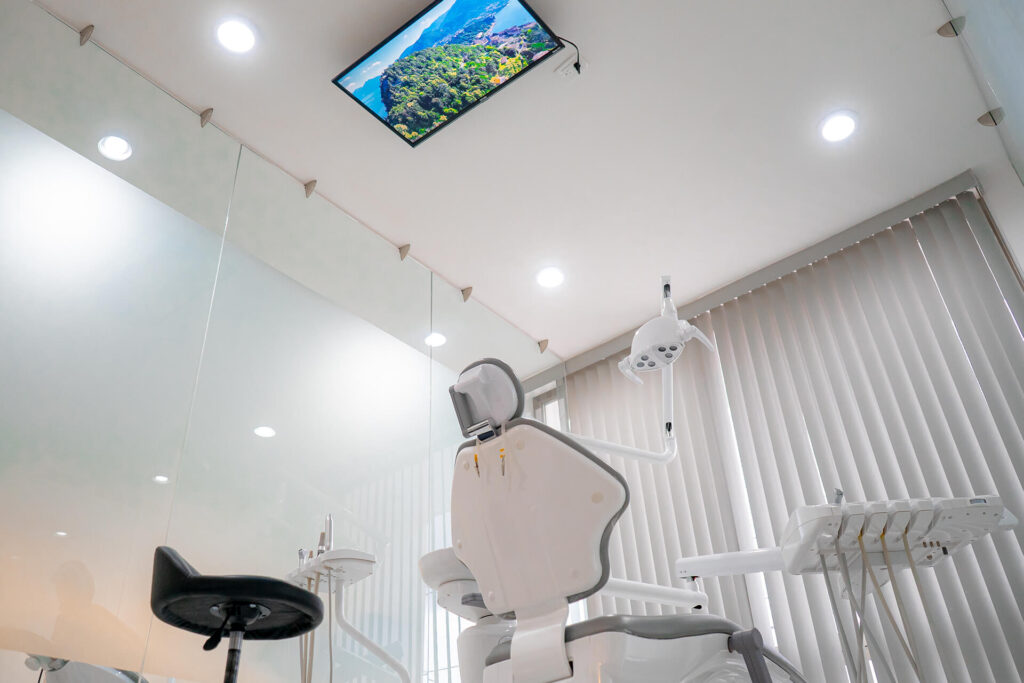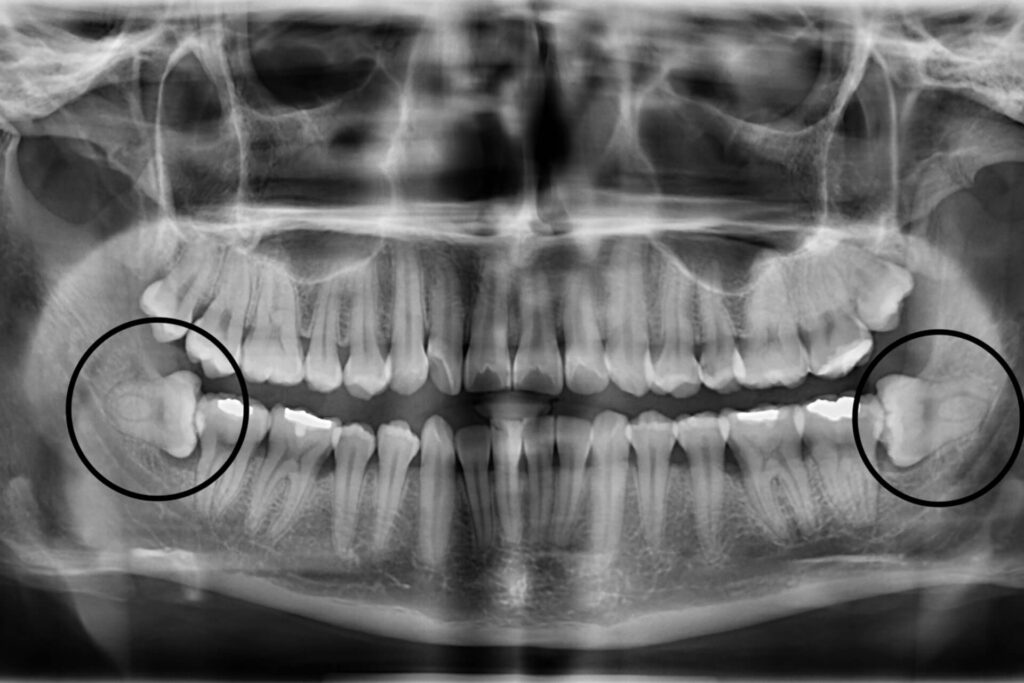Surgery
A different dental experience
Dental surgery is also called oral surgery
That deals with performing surgical procedures on the mouth and related structures. These procedures can address a wide variety of dental and oral problems, from tooth extractions to more complex procedures involving soft tissues and bones.
Some examples of dental surgeries include:
Tooth extraction
This is the most common procedure in dental surgery. It is performed to remove damaged, infected, impacted teeth (such as third molars or wisdom teeth) or to create space in the mouth prior to orthodontics.

The extraction of third molars is one of the most frequent interventions in dental surgery, it is also known as wisdom teeth surgery.
These wisdom teeth usually erupt in adolescence or early adulthood, but in many cases they do not have enough space in the jaw to grow properly. This can lead to various oral health problems, such as tooth crowding, gum inflammation, cyst or tumor formation, infection and pain.
Indications for the removal of third molars may vary depending on each person’s specific situation, but here are some common reasons:
The decision to remove third molars, also known as wisdom teeth, is usually based on an individual assessment of each patient’s oral health. The indications for removing third molars can vary depending on each person’s specific situation, but here are some common reasons why a dentist or oral surgeon might recommend removal of these molars:
IMPACTED THIRD MOLARS
Third molars often do not have enough room in the jaw to erupt properly. When they cannot fully erupt or become partially trapped in the gums or bone, they are considered impacted. This can cause pain, swelling and increase the risk of infection.
Pain
Pain in the wisdom tooth area is a common reason to consider extraction. This pain can be intermittent or constant and is often associated with problems such as impaction, gum inflammation or pressure on adjacent teeth.
Infection or Abscess
Impacted third molars can be prone to dental infections or abscesses. These infections can be painful and, if left untreated, can spread to other areas of the mouth or even into the bloodstream.
Damage to Neighboring Teeth
Wisdom teeth often exert pressure on adjacent teeth as they attempt to erupt. This can cause tooth crowding, displacement or damage to other teeth, which can negatively affect dental alignment and occlusion.
Periodontal Problems
The presence of impacted third molars can make proper hygiene and brushing in that area difficult, increasing the risk of periodontal disease (gum disease) and tooth decay.
Orthodontic Treatment
In some cases, the orthodontist may recommend the removal of third molars as part of an orthodontic treatment plan to create space in the mouth and improve tooth alignment.


